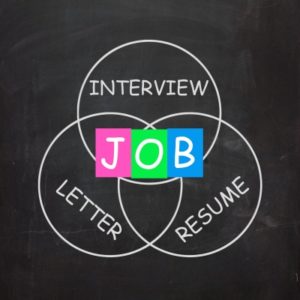If you’re applying for job after job but aren’t being called in for interviews, it’s time to think about why this could be. Sometimes it’s something as simple as not writing out a cover letter but other times the answer might not be so obvious.
Below we have highlighted five reasons which could be contributing towards why you’re not getting job interviews.
You job hop
Recruitment can be a long and costly process so naturally, employers want candidates who show commitment. If you’re in the habit of changing jobs frequently, this can be off-putting to companies because they don’t want to spend thousands of pounds just for you to leave in a couple months’ time.
If your CV is a bit jumpy, the good news is that there are ways of working around this. Focus on what you have gained from your experience – the benefit of job hopping is that employees are good at doing lots of different jobs and will have extended their skillset.
You’ve been unemployed for a long time
When you’ve been out of work for some time, it starts to become increasingly difficult to find employment. If months have gone by and you still don’t have a job, try to maximise all the different job hunting methods available to you.
Register with recruitment agencies, apply to roles via online job boards, optimise your LinkedIn profile, attend networking events and approach companies directly.
You’re overqualified
It’s hard to believe that being overqualified could ever be a bad thing but unfortunately, it does often lead to assumptions amongst employers. They may worry that you’ll be expensive, you will move on quickly or you will get bored.
Make it clear in your cover letter that you understand the job on offer and why you’re applying for it. Perhaps you’re choosing less responsibility in favour of a better work-life balance or you quite simply preferred the role you had before you were promoted.
You haven’t tailored your CV
If you’re applying to lots of jobs, it’s tempting to use a standard template. The problem with this is that you’re not telling employers why you would be good for the role. It’s important to tailor your CV to include the skills required and take out anything that’s irrelevant.
Spelling and grammar mistakes
Your CV is the first and only thing that a potential employer has to judge you on so it’s important to get it right. If your resume is littered with mistakes, this sends out the message that you couldn’t even be bothered to check it through – an approach that companies worry you might take with your work as well.
Once you have finished writing your CV, read through it a few times, do a spell check and also ask someone else to go over it in case you’ve missed anything.
If you would like help finding your next job, please feel free to contact Choralis Consulting and we will be more than happy to help. Alternatively, you can view our current vacancies or submit your CV via our website.






Join us on LinkedIn Follow us on Twitter
Follow us on Twitter 